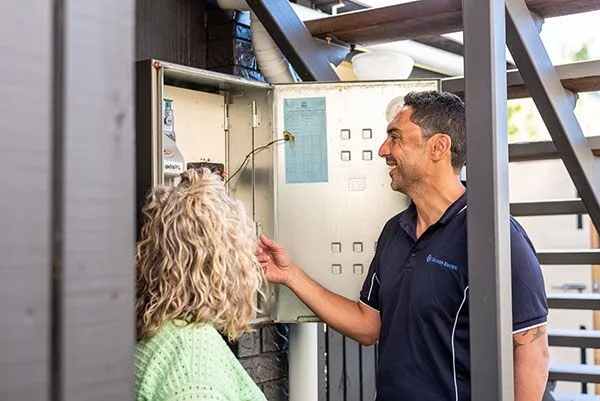Introduction
When it comes to maintaining a safe and efficient home, one aspect that should never be overlooked is the electrical system. Whether someone is buying, selling, or renting a property, ensuring that the electrical components are in top condition is essential for both safety and compliance. An electrical house inspection is a crucial process that helps identify potential hazards, faulty wiring, and overloaded circuits before they lead to serious issues. It not only safeguards the property but also provides peace of mind to homeowners, tenants, and property managers alike.
Understanding the Importance of Electrical Safety
Electricity powers nearly every aspect of modern living, but when neglected, it can become one of the most dangerous elements in a home. Faulty wiring, aged circuit breakers, and malfunctioning appliances are among the leading causes of electrical fires and power failures. Many homeowners fail to realize the importance of regular inspection until they experience power outages, flickering lights, or circuit trips. A professional inspection ensures the entire electrical system is up to code and functioning properly, preventing hazards before they occur.
What Is an Electrical House Inspection?
An electrical house inspection is a detailed examination of all electrical installations within a property. Conducted by licensed electricians, this inspection involves checking wiring systems, outlets, lighting, switchboards, and electrical appliances. The goal is to assess whether the installation complies with Australian safety standards and identify any potential fire or shock risks.
Professionals use specialized equipment to test circuits, measure voltage levels, and detect hidden faults. This thorough evaluation allows them to recommend repairs or upgrades that will enhance the property’s safety and energy efficiency.
Key Reasons to Schedule an Electrical House Inspection
1. Safety Assurance
The primary reason for conducting an electrical inspection is safety. Faulty wiring or overloaded circuits can cause electric shocks or even devastating fires. By identifying problems early, homeowners can prevent accidents and costly damages.
2. Compliance with Electrical Standards
Electrical systems must comply with national and local safety standards. Inspections ensure that the wiring and installations meet regulatory requirements, especially for rental properties or homes being prepared for sale.
3. Increased Property Value
For those selling a home, a clean electrical inspection report can enhance property value. Buyers are more confident when they know the electrical infrastructure is safe and efficient.
4. Prevention of Unexpected Failures
Regular inspections can detect wear and tear before it leads to power outages. It’s a proactive step that saves money and prevents inconvenience.
When Should a Property Owner Book an Inspection?
There are several situations when an electrical inspection becomes essential:
- Before Buying or Selling: Property transactions often require an electrical safety report to ensure the home meets standards.
- During Renovations: Any electrical modifications, such as new lighting or appliance installations, should be inspected for safety compliance.
- After Electrical Failures: Frequent tripping breakers or flickering lights indicate underlying electrical problems that require immediate evaluation.
- Every Few Years: Even without visible issues, experts recommend a complete inspection every five to ten years to maintain safety and efficiency.
Common Issues Detected During Electrical Inspections
Faulty Wiring
Aged or damaged wiring is one of the top issues uncovered. Old wires can deteriorate over time, leading to overheating or sparks.
Overloaded Circuits
Many modern homes use multiple high-powered devices simultaneously. Without proper circuit distribution, this can overload systems and increase fire risks.
Outdated Switchboards
Old switchboards may lack safety switches (RCDs) that protect against electrical shocks. Updating them is vital for modern safety standards.
Loose Power Outlets and Switches
Loose or cracked outlets can expose wiring and lead to electric shocks. During inspections, professionals test and secure all connections.
Improper DIY Work
Unlicensed electrical repairs or installations can result in serious hazards. A professional inspection identifies such work and ensures it’s rectified.
The Process of a Professional Electrical Inspection
- Visual Assessment: The electrician examines all visible electrical components, including outlets, switchboards, lighting, and connections.
- Testing Equipment: Tools such as voltage meters, insulation testers, and thermal cameras help detect hidden faults and overheating areas.
- Compliance Checks: The professional verifies whether the electrical system meets Australian standards (AS/NZS 3000).
- Report Generation: A detailed report outlines issues found, along with recommended actions, repairs, or upgrades.
Benefits of Regular Electrical Maintenance
Routine electrical maintenance following an inspection ensures long-term safety and performance. It helps:
- Prevent unexpected failures
- Extend the lifespan of electrical systems
- Maintain consistent power supply
- Reduce energy consumption
- Enhance property value and insurance compliance
Electrical Safety Tips for Homeowners
- Avoid Overloading Outlets: Use power boards with surge protection rather than stacking multiple adaptors.
- Install Safety Switches: Ensure that all circuits have RCD protection to minimize shock risk.
- Replace Damaged Cords: Worn or frayed cables should be replaced immediately.
- Keep Water Away from Electrical Sources: Never use electrical devices near wet areas without proper insulation.
- Schedule Regular Inspections: Proactive maintenance can prevent emergencies and ensure long-term safety.
The Role of Qualified Electricians
Not every electrician is qualified to perform an electrical house inspection. Only certified professionals with the right credentials and experience should handle this task. Licensed electricians not only inspect but also provide expert recommendations for repairs and upgrades. Their training ensures accuracy in detecting even the smallest faults that might otherwise go unnoticed.
By hiring reputable professionals, homeowners ensure compliance with electrical codes, efficient power distribution, and long-term reliability.
How Electrical Inspections Save Money in the Long Run
While many homeowners view electrical inspections as an added expense, they are, in reality, a smart investment. Detecting and fixing minor electrical issues before they escalate can save thousands in repairs or damage restoration. Preventing fires or system failures not only protects property but also safeguards lives. Moreover, energy efficiency improvements discovered during inspections can reduce utility bills over time.
Choosing the Right Electrical Service Provider
When selecting an inspection service, homeowners should look for companies with:
- Licensed and insured electricians
- Transparent pricing and detailed reporting
- Positive customer reviews and proven expertise
- Compliance with national electrical standards
Reputable providers like Dawson Electric emphasize safety, professionalism, and transparency in every service they deliver. Their commitment ensures that homeowners can trust their property’s electrical systems completely.
The Future of Electrical Safety
With technology rapidly evolving, electrical safety standards continue to improve. Smart systems, energy-efficient wiring, and integrated safety switches are becoming the norm. Regular inspections will play an even greater role in maintaining these modern systems, ensuring they perform optimally while minimizing risks.
The Bottom Line
An electrical house inspection is far more than a routine check—it’s a comprehensive safeguard for homes, families, and investments. By ensuring all electrical components meet safety standards and function efficiently, property owners can prevent potential disasters and enhance long-term value. Regular inspections performed by licensed electricians offer peace of mind, compliance, and reliability. Whether buying, selling, or simply maintaining a property, scheduling a professional inspection is one of the smartest decisions a homeowner can make.

